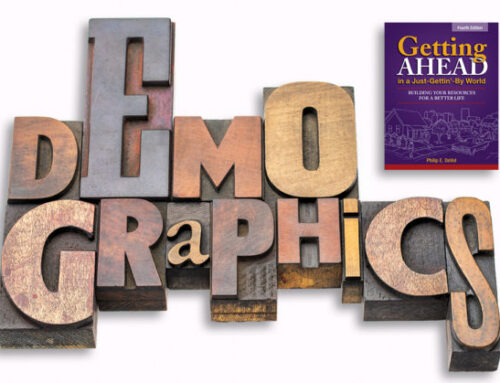Philip E. DeVol and Eugene K. Krebs
 We have written a new book titled Bridges Across Every Divide: Policy and Practices to Reduce Poverty and Build Communities.
We have written a new book titled Bridges Across Every Divide: Policy and Practices to Reduce Poverty and Build Communities.
Getting ahead is hard to do
- Poverty percentages have essentially stayed the same since the early 1970s.
- The middle class is declining.
- The working classes are struggling: More than 50% of U.S. Americans don’t have $500 to meet an emergency; 78% are living paycheck to paycheck.
- Full-time jobs with benefits where there is security and a ladder to climb inside the organization are being replaced by part-time, contractual, and sub-contractual work that leads to instability.
- Poverty is destabilizing to those who are in it and to the community as a whole. Almost every sector (prenatal health, early childhood development, education, workforce development, employment, business, banking, health, criminal justice, elder care) is impacted by and must deal with the consequences of poverty.
- In this environment it is very hard for people in poverty to get from the least-earning quintile to the next.
- Poverty is different in every community. Where you live matters.
- Elected officials seem to only give platitudes and facile solutions; the book explains why, and what you can do about it.
Personal and political challenges
Without a common language and an accurate understanding of poverty, there is little hope of developing a comprehensive approach to such a complex problem. This book offers up both a common language and an accurate understanding of poverty, and the process for policy solutions in a harsh political environment. The book also gives insights on why politics is so divisive.
People in the U.S. feel distant from their local, state, and federal officials, often for good reason. This book describes how to connect with leaders and officials.
U.S. Americans often feel distant from those above and below them on the economic ladder, and across all the class boundaries. Until we begin to connect to each other across all class lines as we did in earlier iterations of this country, we cannot connect to each other politically, nor can we connect to our elected officials. This book bridges those gaps through understanding and communication.
This lack of connection is what is driving people in the U.S. to embrace politicians who offer facile solutions to complex problems, especially poverty and economic development. This book offers clear solutions to complex problems and shows political leaders and citizens alike how to achieve them.
A lot of legislation fails because too many people think policy development is like playing a game of pool. Also, a lot a legislation fails the 85, 50, and 1 rule. This book provides policy development guidelines designed to help initiatives succeed and explains those cryptic allusions.
Average citizens generally are baffled as to how to approach the modern politician in this era of high-population government. This book offers a step-by-step guide for doing just that. It is all about leverage.
In a few short years, almost half of the current jobs in America will vanish due to automation and artificial intelligence. Traditionally we have used low-skilled manufacturing jobs to move the poor and working poor up to the middle class so they can provide more educational opportunities for their children. Those jobs are being lost, and we need to chart new paths to achieve the stability of the middle class.
Proven solutions
Bridges and Getting Ahead collaboratives have been expanding over 20 years and are now in 46 U.S. states and five countries worldwide. Getting Ahead has been translated into Spanish, Czech, and Slovak.
Bridges has now grown to the place where policy is next. Interviews with members of the Bridges learning community describe what is occurring on the ground—the methodology. The growth of Bridges sites, their innovations in several sectors, and their impact on local policies reveal that we can impact policy.
Lawrence Funderburke, author of Sociopsychonomics, and Phil DeVol were recently on a panel speaking about poverty. The Columbus Metropolitan Club was started by a group of women many years ago because all the clubs in the city were run by men. Now CMC is a weekly forum and a force in the community.








